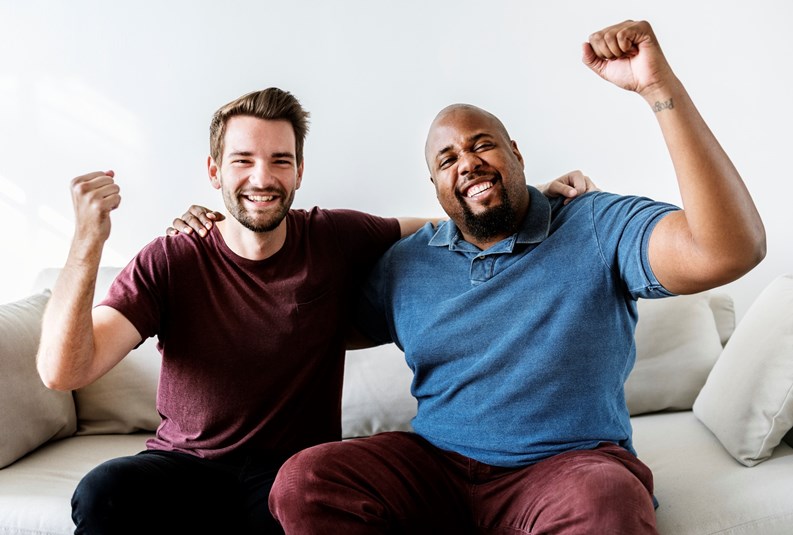When it comes to two people buying a home together, the traditional assumption is that they’re either in a romantic relationship, married, or related. But the definition of relationships has evolved with the times. Not all people marry, and not all people can afford to purchase a home alone, especially in a place as expensive as New York City. So can two unrelated individuals who are not in a romantically-based life partnership purchase and occupy a co-op apartment together? The experts weigh in.
What’s Defined in the Law?
Recent updates to the non-discrimination law in co-op ownership have touched on issues such as physical disabilities, gender identification, and primary source of income. Marital status is perhaps the most common and continually expanding subset of potentially ‘protected’ categories.
“The law prohibits discrimination on the basis of, among other things, marital status,” says Phyllis Weisberg, a partner at the New York law office of Montgomery, McCracken, Walker & Rhoads.
Taking Advantage of Ownership Benefits
Not all single people want to live in a small space, which might be all they can qualify to purchase on their own. The idea that a single person might rent a two-bedroom apartment and then rent out the second bedroom, or find a long-term roommate to rent that apartment with and share the unit, is far from unusual. As a matter of fact, it’s quite common. Just check out those ads in the subway offering roommate search services.
However, renting does not offer the long-term tax benefits of ownership or the opportunity for appreciation that ownership affords. If two good friends can pool their resources and purchase an apartment, why not get the benefits of ownership while remaining roommates?
We Don’t See This Too Often
Larry Lubin, a real estate broker with Klara Madlin Real Estate in Manhattan, has represented both buyers and sellers of co-ops for over 20 years. “We don’t see this too often,” he says of the 'just friends' scenario. “I once had a sale in a co-op, though, where the purchaser put his best friend on the proprietary lease and he lived with him. It was a very liberal board. Boards aren’t looking for a lawsuit. They just want to make certain their maintenance gets paid.”
Lublin believes a board can’t discriminate on the basis of marital or familial status. “It’s unusual for people to buy under this arrangement,” he says. “It used to happen with gay couples before marriage equality, and I’ve known of some male/female couples who weren’t married but who bought together. Any co-op board that turns people down in that situation is really looking for trouble.”
Legally Speaking
“The proprietary lease does not prohibit two unrelated individuals from purchasing a unit together,” says Andrew Freedland, a co-op attorney with Anderson Kill, a law firm based in Manhattan. “This arrangement happened a lot before marriage equality, when gay couples wanted to purchase an apartment together. I don’t see any reason two friends couldn’t do it. I’ve seen apartments bought by boyfriend and girlfriend, so why not two friends?"
What Freedland recommends, however, is that the friends create a tenancy-in-common agreement between them. “That agreement,” he says, “would govern what would happen to the apartment in the event one owner died or wanted to sell.” Other issues, such as the distribution of tax benefits between the partners, whether they are equal or weighted depending on their respective percentage investments, and inheritance rights for the heirs of either party could be outlined in the tenancy-in-common agreement as well.
In the final analysis, there appears to be no legal obstacle standing in the way of two friends or otherwise unrelated individuals from purchasing a co-op and living there together. The precedent for this seems to have been set and accepted before the enactment of marriage equality.
However, prospective buyers should keep two things in mind: First, don’t go into the purchase intending to rent the apartment out as an income-producing investment. A co-op board can -- and in all probability will -- prohibit that. They want owner-occupants, so expect to actually live in your unit. Second, make sure you and your friend/partner can live together peacefully before entering into an arrangement like this. Unlike a rental, you can’t just move out.
AJ Sidransky is a staff writer at The Cooperator, and a published novelist.







Comments
Leave a Comment